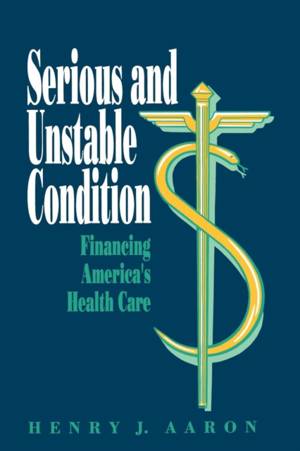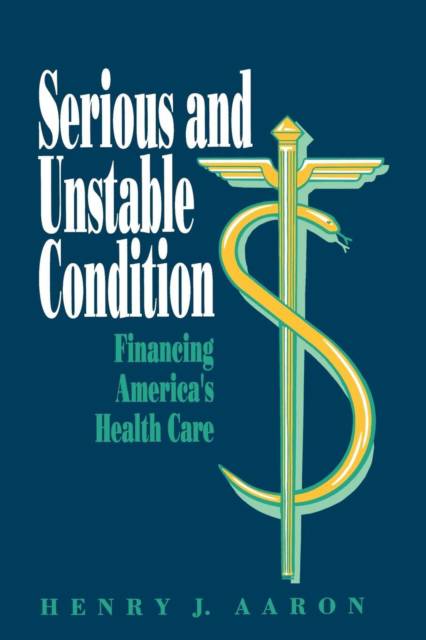
- Afhalen na 1 uur in een winkel met voorraad
- Gratis thuislevering in België vanaf € 30
- Ruim aanbod met 7 miljoen producten
- Afhalen na 1 uur in een winkel met voorraad
- Gratis thuislevering in België vanaf € 30
- Ruim aanbod met 7 miljoen producten
Zoeken
€ 44,45
+ 88 punten
Omschrijving
The United States spends more on health care than any other nation in the world, yet millions of Americans cannot afford basic care for acute illnesses, few are insured against the costs of long-term care, and many frequently used medical procedures have never been fully evaluated. The goals of controlling spiraling health care costs and extending insurance coverage or even maintaining current insurance coverage seem to be in conflict. But progress can be made on both goals if they are tacked together. Henry Aaron evaluates these critical issues and explores how adequate care can be provided without fueling inflation. Because the current arrangements for financing America's health care cannot endure, Aaron contends that a major national debate on the restructuring of the U.S. system of financing health care is inescapable, and major legislation is likely. Serious and Unstable Condition offers a guide that is crucial to understanding the reform debate. It explains the important economic issues of health care as a background for evaluating both the current system and proposals for change. Aaron compares the U.S. system of health care financing with certain foreign systems and reviews major options for reform. He cautions that unless the health insurance system is radically changed, the number of uninsured will continue to increase and costs will continue to escalate. He then offers his own comprehensive plan to address these problems.
Specificaties
Betrokkenen
- Auteur(s):
- Uitgeverij:
Inhoud
- Aantal bladzijden:
- 180
- Taal:
- Engels
Eigenschappen
- Productcode (EAN):
- 9780815700500
- Verschijningsdatum:
- 1/06/1991
- Uitvoering:
- Paperback
- Formaat:
- Trade paperback (VS)
- Afmetingen:
- 151 mm x 232 mm
- Gewicht:
- 272 g

Alleen bij Standaard Boekhandel
+ 88 punten op je klantenkaart van Standaard Boekhandel
Beoordelingen
We publiceren alleen reviews die voldoen aan de voorwaarden voor reviews. Bekijk onze voorwaarden voor reviews.







